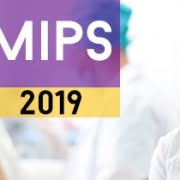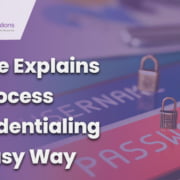4 Health IT Recommendations for Remote Healthcare Under HIPAA
Working from home is a new reality. The novel coronavirus has left us at home while it continues to affect the human race. It doesn’t differentiate between humans based on their race, wealth, color, sex, or religion; moreover, it treats the young and grownups alike. That is how ruthless it is.
In such overwhelming times, when healthcare workers face the challenge of a growing number of COVID-19 patients on one side, they are required to follow the rules of HIPAA remote care on the other. They are under obligation to meet HIPAA security and privacy requirements no matter how big or small their practice is. In fact, it is not something new to them in the best interest of Protected Health Information (PHI).
Therefore, we will know in today’s article that how physician practices, with the help of health IT, can address the HIPAA security risk analysis issue head-on, especially when it comes to remote care.
Implement Technologically-Advanced Measures to Ensure Data Safety
Under HIPAA, it is obligatory for hospitals and practices in the US to protect sensitive patient data from violators or from going public. The new norm of diagnosis and treatment coupled with the support of health IT ensure remote healthcare fall in line with the rules of HIPAA.
Telemedicine moves forward with a bubble of protection to safeguard patient information. Let’s see some recommendations for technologists supervising remote care communication:
Set Clear Instructions for Remote Use of Healthcare Devices
One thing that we should remember is that healthcare providers are not IT experts. While they know the importance to protect the confidentiality of patient data, they don’t always know how to achieve that stage. Besides, they are too busy with their patients to worry about the laws that govern remote healthcare access.
Here comes the role of the technologists of practices who have the responsibility to provide clear instructions on how to use devices or software securely.
When developing the guidelines, come up with step-by-step execution of the process that simply describes what to do. Too many options or vague advice lead to confusion instead of clarity. HIPAA security risk analysis of remote healthcare ensembles with the list of recommended tools and how providers may use them to provide care.
Set Access Restriction on Remote Devices
Another factor that extends the security feature is to restrict access with multiple passwords on remote devices. For instance, the pandemic has made many medical billers and coders work from home. Healthcare information is sensitive and should be protected at all costs.
Here to ensure HIPAA-compliant medical billing, the administrative authorities must put several security measures along with a proper monitoring system to control unauthorized use.
Such measures add to your credibility and align with the organization’s privacy objectives.
Know HIPAA Requirements Before Suggesting Tools
For a technologist, knowing the requirements of HIPAA are one of the essentials they cannot ignore. Since many healthcare practices now turn to new teleworking technologies facilitating video chats, data share, and follow-ups, it comes on you to explain to them which tools are allowed under the Health and Information Portability and Accountability Act (HIPAA).
Providers can only choose a selected bunch of tools that adhere to the HIPAA privacy and security guidelines to communicate. They are not at liberty to use just any tool that they find on the internet and download it for free. Hence, it is of utmost importance that the health IT experts handling your practice’s remote communication are aware of the provisions of HIPAA. Moreover, they must show the will to enter into an official contract as a business associate.
Zoom is an example of a tool that is allowed for healthcare professionals to see their patients. However, there is a specific version that is permissible under HIPAA. Licensed Specialized Zoom for Healthcare solution is the version that fulfills the requirements of HIPAA. Hence, business associates can carry out PHI transmission through Zoom’s specified version.
Also, the above version integrates with electronic health record (EHR) systems seamlessly.
Supply Compliance-friendly Devices for Safety & Management
When remote care is at play, the idea is to create a safe passage for patient-provider interaction. The healthcare IT teams have to supply healthcare workers with compliance-friendly correspondence devices because that is far less burdensome than manifesting security in each of the employee-owned devices. So even when they go home, they may use only a secure line of communication.
Preconfigured gadgets guarantee adherence to policies that govern PHI safety.
Additionally, for IT teams it is much easier to manage a system that they are familiar with; it is the same mobile device management system they work on at the office.
Use of VPNs to Secure Online Connectivity
Virtual Private Networks (VPNs) are software applications that offer encryption of any data that travels through them. Health IT teams have a job to do; they must remember to equip devices in the use of practitioners with enough security controls to counter unauthorized access.
Two networks need to be secured: providers’ home network and the Internet between the home and the practice.
Management of device configuration solves most of the problems, but it still leaves room for intruders to jump whenever they want.
Hence, suggested is the use of VPNs to ensure safe online connectivity. Any communication that happens between the office and home is secure. A VPN develops a secure encrypted tunnel across the communication channel from the practitioner’s device to the receiver’s end.
It further provides content filtering, firewall safety, and end-to-end encryption to home users just as it would for workers within a hospital or clinic.
With the above four recommendations, we conclude this article in the hope that it is sufficient information regarding telemedicine’s safety standards for health IT. If you want to hire services of professionals who can offer HIPAA security risk analysis to remote medical practices, please get in touch with P3 Healthcare Solutions. We are also a HIPAA medical billing company that takes extreme caution when it comes to protected health information.

















Yes, during the pandemic Covid-19 working from home has become a reality and no one can deny this. In this modern age as the world has become the global village so Healthcare IT also plays an important role in the Healthcare Industry. I have agreed with your words these words are meaningful.
Working remotely is so difficult. As a nurse, I can vouch for it. Sometimes, patients think that the whole course of action ain’t serious, and we have to be extra careful to secure patients’ privacy.
These are some good steps that if adapted accurately can prove to be fruitful.
Seems informative! Genuinely impressed with the way of delivering information in an easy language on such a complex topic!